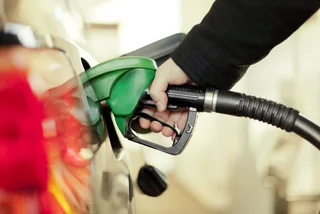Long queues at currency exchange offices have become a familiar sight in Prague since Russia’s invasion of Ukraine sent the world into political and economic turmoil two weeks ago. Alarmed by a dramatic fall in the value of the Czech crown, many Czechs are buying up safer foreign currencies in a bid to protect the value of their money.
Yet the scramble to offload crowns may be unwise in the long run. A severe and sudden decrease in value for the crown was predictable amid the great uncertainty of the early days of the war and sanctions on Russia, but recent days have seen the first signs of a re-adjustment in the exchange market. Now may, in fact, be the very worst time to swap currencies.
PARTNER ARTICLE
One euro today buys CZK 25.14, compared to CZK 24.31 prior to the start of the crisis in Ukraine. A huge decrease in value was also seen compared to the British pound and the U.S. dollar; one dollar currently buys CZK 22.81, compared to CZK 21.58 before the invasion.
The crown has started to regain some of its heavy losses, but money changers are still besieged by Czechs looking to exchange crowns for safer currencies. They report that the amounts being changed have increased, with tens of thousands of crowns often exchanged at a time.
The sense of growing economic panic is understandable, but counter-productive. Experts from Generali Investments warn against people withdrawing money in cash as a measure to prevent against the decreased value of savings.
“The value of most investments is currently low due to the unstable market situation, so if people withdraw finances now, they will actually lose some of their funds,” said Marek Beneš, Chief Financial Officer at Generali Investments.
Meanwhile, inflation is leading to incipient panic in the agricultural and industrial sectors. Fuel prices are at record highs, so storage facilities are restricting supplies to distributors. This is leading farmers and companies in the industrial and manufacturing sectors to fall short of vital supplies.
Ordinary road users in the Czech Republic haven’t yet started panic-buying fuel, but Czechs living in areas bordering Poland have descended on gas stations across the border in droves, taking advantage of lower fuel prices and leading some Polish gas stations to run out of diesel.
Fuel prices rose dramatically in Czechia prior to Russia’s invasion of Ukraine, as part of wider inflationary pressures brought on by the pandemic’s interruption of normal business activity. Inflation hit 11.1 percent in February, its highest level since 1998.
Economists warn this figure is likely to increase even further over the coming months as the economic impacts of the war in Ukraine make themselves felt. In this context, concern is understandable; but panic is only likely to make the financial impacts of the situation even worse.












 Reading time: 2 minutes
Reading time: 2 minutes 
























